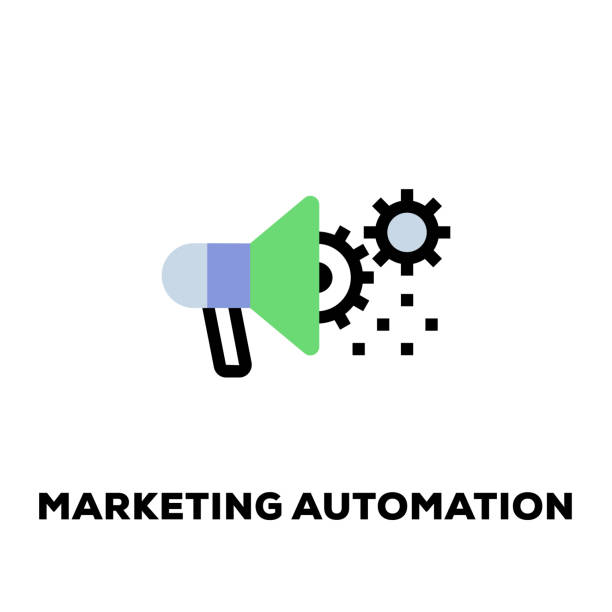In today’s digital world, businesses must stay competitive and manage multiple marketing tasks. That’s where marketing automation comes in. These software solutions automate repetitive marketing tasks so companies can focus on higher-level strategies.
Marketing automation can manage multiple email campaigns, social media posts, lead nurturing and more. By streamlining these processes, companies can ensure consistent and timely communication with their audience, build customer relationships and drive engagement. It’s not just about saving time; it’s about increasing the effectiveness of your marketing.
Marketing automation allows for precise targeting and personalization, making reaching the right audience with the right message at the right time easier. With advanced analytics and reporting, businesses can get insight information into their marketing performance and make data-driven decisions and continuous improvement.
Marketing automation can also align sales and marketing. Tracking and managing leads throughout the customer journey means every opportunity is noticed, and potential customers are nurtured until they are ready to buy. Whether you’re a small business or a large enterprise, the right marketing automation tool can bring significant benefits. These tools are designed to scale with your company, with features to suit all needs and objectives. From basic email marketing automation to complete customer relationship management (CRM), a marketing automation tool can help you achieve your business goals.
Leading Tools for Marketing Automation
When looking at marketing automation tools for their features and usability, several stand out.
HubSpot is a favorite among many businesses because it’s a complete platform that combines CRM, content management, and marketing automation. It’s user-friendly and has detailed analytics, so it suits any marketing need.
Marketo is another top contender, especially for larger businesses. It has advanced features like sophisticated email marketing and deep customer segmentation. These features are suitable for complex marketing strategies and larger teams.
Mailchimp is liked by small- and medium-sized businesses for its simple email automation and campaign management tools. It’s an entry point for those new to marketing automation and has a balance of functionality and ease of use. Emerging tools are also popping up in the marketing automation space.
ActiveCampaign is one such tool known for its innovation and flexibility. It has email marketing, automation workflows and CRM, so it suits business models.
Autopilot is another rising star that is liked for its visual approach to marketing automation. Its intuitive interface allows users to design and manage automation workflows easily. It’s popular for businesses looking for a more visual and interactive experience. Each tool is different and suitable for various business sizes and marketing needs. Whether you need a complete platform or a simple solution, you have a marketing automation tool.
Advantages of Utilizing Marketing Automation Tools
Marketing automation tools have many benefits that can supercharge your marketing. One of the biggest is the ability to batch out tasks. Your team can focus on the more critical stuff by automating the small things like email campaigns, social media scheduling and lead nurturing. That saves time and increases productivity.
Another is the targeting and personalization these tools provide. Advanced segmentation allows you to create marketing campaigns for specific customer groups. That level of personalization builds relationships with your audience and can lead to high engagement and conversion rates.
Marketing automation tools also have robust analytics and reporting. You can track your campaigns and goals in real time and get valuable insights into what’s working and what’s not. That’s data-driven decision-making and optimization of your marketing. Integration is another significant benefit of marketing automation. Many platforms, like your CRM or e-commerce platform, can connect to your existing systems. That means all your data is in one place and easy to manage and analyze.
Marketing automation can also help with customer retention. You can engage your audience and get repeat business by sending timely and important messages throughout the customer journey. Automated workflows ensure every customer is remembered, nurtured, and converted into a loyal customer. Lastly, marketing automation can align your marketing and sales teams. By giving both teams a view of the customer journey, they can work together to close deals and drive growth. With shared insights and coordinated actions, you can ensure your marketing contributes directlyes goals.
Drawbacks of Marketing Automation Tools
Like every other tool, marketing automation tools are powerful but have downsides. One of them is cost. Some platforms may offer free or low-cost basic features, but the more advanced features cost more if you intend to make use of their advanced features. This can be a problem for smaller businesses or startups with limited budgets.
Another area for improvement is the complexity of setting up these tools. They require a steep learning curve, and staff must use them effectively without training. You may need to allocate more resources for training sessions and ongoing support, adding to the overall cost and time investment.
There’s also the risk of over-automation. While automating repetitive tasks saves time, it can also lead to a lack of personalization if not appropriately managed. For example, automated emails that are too generic may not engage recipients, and they will lose interest. It would help if you balanced automation and personal touch in your communications.
Another potential drawback is integration issues. While many marketing automation tools promise seamless integration with existing systems, this is not always true. Compatibility problems can arise, and data silos or miscommunication between platforms can happen. This can hinder your marketing efforts and require more troubleshooting.
Lastly, there are issues of data privacy and compliance. With increasing regulations around data protection, you need to ensure your marketing automation practices comply with the law. Failure to do so can result in heavy fines and damage your company’s reputation. So, choosing tools with robust security and compliance features is a must.
Selecting the Right Tool for Your Company
When choosing the marketing automation tool for your business, you must consider several things. First of all, what is your budget? How much are you willing to invest in automation software? Then, what are your business needs, how big is your customer base, and what kind of campaigns will you run?
When comparing different tools, note their features and how they align with your goals. For example, if advanced analytics is a must-have must-have, ensure the tool has robust reporting. If ease of use is key, look for tools with simple interfaces and excellent customer support. Scalability is another big one.
The marketing automation needs of your business will evolve as it grows. Choose a a tool that can expand your organization, adding features and integrations. needed. Also, consider how customizable the tool is. Tailoring the tool to your workflows can make a huge difference in efficiency. Integration is also key.
The technology integrates effortlessly with your existing systems, like your CRM or e-commerce platform, so data flows smoothly and is centrally managed. Read user reviews and case studies to see how the tool performs in real life. This will provide insight into the challenges and benefits, allowing you to make more informed decisions.
Closing Thoughts
Choosing the appropriate marketing automation tool can make a huge difference for your business. Work out what you need and what you want, and take your time. Try out different options, read reviews and, if possible, try free trials. Remember, the tool should meet your needs now and scale with your business. With the right tool, you can streamline your marketing, personalise it, and get better results.





